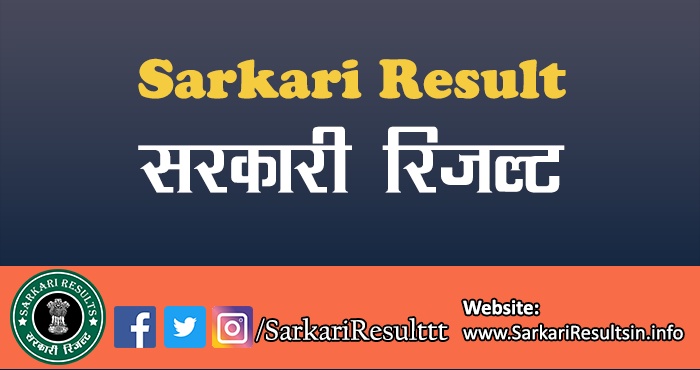Logical reasoning is a crucial component of Sarkari (government) exams, serving as a litmus test for an individual's analytical skills, problem-solving abilities, and decision-making prowess. Whether it's the civil services exam, banking exams, or any other government recruitment test, logical reasoning plays a pivotal role in assessing candidates' suitability for various roles within the government sector. In this article, we delve into the significance of logical reasoning in Sarkari exams, its types, and strategies to ace this section.
Importance of Logical Reasoning:
-
Critical Thinking Skills: Logical reasoning evaluates candidates' critical thinking abilities by presenting them with complex scenarios or arguments that require careful analysis and evaluation. It assesses their capacity to discern patterns, identify relationships, and draw logical conclusions.
-
Problem-Solving Abilities: Government jobs often involve dealing with intricate problems and making sound decisions under pressure. Logical reasoning tests candidates' problem-solving skills by presenting them with diverse scenarios and assessing their ability to apply logical principles to arrive at solutions.
-
Decision-Making Competence: Government officials are entrusted with making crucial decisions that impact the lives of citizens and the functioning of public institutions. Logical reasoning tests candidates' decision-making competence by assessing their ability to weigh evidence, consider alternatives, and make informed choices.
-
Efficiency and Accuracy: In Sarkari exams, where time is of the essence, logical reasoning tests are designed to evaluate candidates' efficiency and accuracy in processing information and arriving at solutions within the stipulated time frame.
Types of Logical Reasoning Questions:
-
Verbal Reasoning: Verbal reasoning questions assess candidates' ability to analyze written passages, draw inferences, and evaluate arguments. These questions may require identifying the main idea, distinguishing between fact and opinion, or evaluating the strength of arguments.
-
Non-Verbal Reasoning: Non-verbal reasoning questions evaluate candidates' spatial awareness, visual reasoning, and pattern recognition skills. These questions may include topics such as figure series, analogies, classification, and spatial reasoning.
-
Analytical Reasoning: Analytical reasoning questions test candidates' ability to analyze relationships between various elements and draw logical conclusions. These questions may involve topics such as syllogisms, logical deductions, and seating arrangement puzzles.
-
Data Sufficiency: Data sufficiency questions assess candidates' ability to analyze data and determine whether the information provided is sufficient to answer a given question. These questions require candidates to evaluate multiple statements and determine their relevance to the question at hand.
Strategies to Ace Logical Reasoning:
-
Understand the Question Types: Familiarize yourself with the different types of logical reasoning questions commonly asked in Sarkari exams. Understanding the question types will help you approach each question strategically and efficiently.
-
Practice Regularly: Practice is key to mastering logical reasoning. Solve a variety of practice questions covering different concepts and difficulty levels to enhance your problem-solving skills and build confidence.
-
Develop Logical Thinking Skills: Cultivate your logical thinking skills by engaging in activities such as puzzles, brain teasers, and logic games. Strengthening your logical reasoning abilities outside of exam preparation will benefit you during the test.
-
Read Carefully: Pay close attention to the instructions and details provided in each question. Misinterpreting the information given can lead to incorrect answers. Take your time to read the question thoroughly before attempting to solve it.
-
Identify Patterns and Relationships: Look for patterns, relationships, and recurring themes in the data or information presented. Identifying these patterns can help you approach the question methodically and arrive at the correct solution more efficiently.
-
Eliminate Incorrect Options: When faced with multiple-choice questions, systematically eliminate the options that are clearly incorrect. This narrows down your choices and increases the likelihood of selecting the correct answer.
-
Manage Your Time Effectively: Allocate a specific amount of time to each logical reasoning section and pace yourself accordingly. Don't get stuck on challenging questions; move on to easier ones and return to the difficult ones if time permits.
-
Review and Learn from Mistakes: After completing practice tests or mock exams, review your answers carefully and analyze any mistakes you made. Understand why you chose a particular answer and identify areas for improvement.
Conclusion:
In Sarkari exams, logical reasoning serves as a fundamental assessment tool for evaluating candidates' cognitive abilities and decision-making skills. By understanding the importance of logical reasoning, familiarizing yourself with the different question types, and employing effective strategies, you can enhance your performance in this section and improve your overall chances of success in securing a coveted government job. So, sharpen your logical reasoning skills, approach each question with confidence, and conquer the logical reasoning section of Sarkari exams with ease.


No comments yet